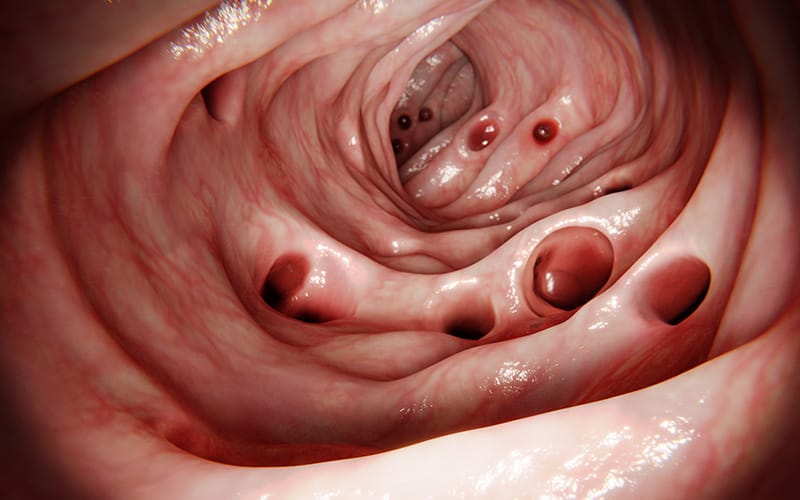A diverticulum is a small pouch emanating from the wall of the gut with multiple diverticulum being referred to as diverticulae – diverticular disease. They can develop in any part of the gut but are most prevalent in the colon (the large bowel). In general they do not cause symptoms unless they become inflamed or infected, resulting in inflammation and severe abdominal pain – diverticulitis. This can result in formation of an abscess or even perforation of the bowel.
Diverticular disease is easily detected by means of a CT virtual colonoscopy and if detected, preventive treatment involves a diet high in fibre, fruits and vegetables and restricting meat intake.
There is no evidence to support a link between diverticular disease and bowel cancer but if left untreated, diverticular disease can be extremely unpleasant. Diverticulitis is treated by antibiotics but surgery may be needed to drain an abscess or if a diverticulum bursts (peritonitis) and usually involves removal of the affected part of the colon. It may or may not involve a colostomy or ileostomy (intestine brought out through the abdominal wall to drain into a bag).
